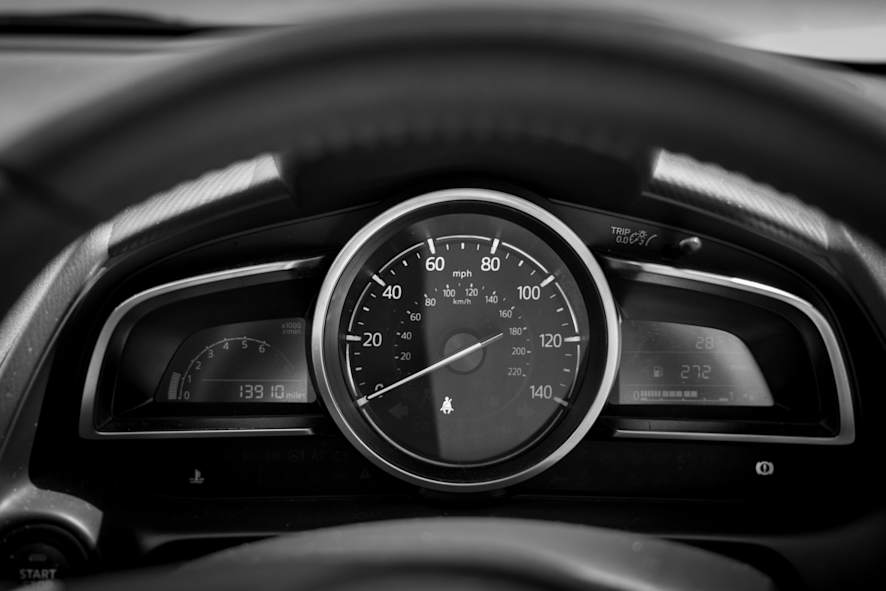
Intuit QuickBooks Small Business Index, December 2024
Simple, smart accounting software - no commitment, cancel anytime

TAX AND PENSIONS
If you’re self-employed, keeping track of your business mileage can sometimes feel complicated and arduous. But, it’s one of the most important steps you can take to ensure you’re claiming the full mileage allowance and making full use of your tax deductions.
For business owners who have little time to waste, or employees who are using their personal vehicle for work, mileage tracking is one task you don’t want to avoid.
With this in mind, our handy guide to mileage tracking will cover everything from the basics of mileage to efficient tools that will help you stay on track.
Ready to take control of your business mileage?
There are a number of reasons why tracking business mileage is important, no matter whether you’re self-employed or working for a business that requires lots of vehicular travelling. Perhaps the most fundamental benefit to mileage tracking is that accurately logging your hours will allow you to claim allowable expenses and reduce tax liability.
Alongside this, maintaining comprehensive mileage records is essential for compliance with HMRC regulations. By adhering to these guidelines, you can avoid potential penalties and ensure the accuracy of your tax returns.
Beyond financial advantages, mileage tracking also provides valuable insights into vehicle-related costs, which you’ll see by analysing your logged hours. This will allow you to make informed decisions about budgeting, fleet management, and other potential cost-saving measures.
Mileage tracking works by recording the distances you travel for business purposes when using your own vehicle, such as a car, van, motorbike, or bicycle. Most modern mileage tracking systems use GPS technology to automatically log your trips, and capture key details like the route and distance travelled.
When the hours are logged, employers can reimburse you for business travel at HMRC’s approved mileage rates, which are tax and National Insurance contribution (NIC) free.
If your employer pays less than these approved amounts or doesn't reimburse you at all, you can claim tax relief on the difference, provided you're a taxpayer. This system applies to all types of vehicles, including petrol, diesel, electric, and hybrid cars.
How much business mileage you can claim if you’re self-employed or employed depends on the type of vehicle you're using and the number of miles you drive for business in a given tax year.
Here are the HMRC-approved mileage rates for cars, vans, motorcycles, and bicycles:
Cars and Vans:
For the first 10,000 business miles in the tax year: 45p per mile.
For each mile over 10,000 business miles: 25p per mile.
Motorcycles: 24p per mile (no change after 10,000 miles).
Bicycles: 20p per mile (no change after 10,000 miles).
If you carry fellow employees in your car or van on business journeys, you can also claim an additional 5p per passenger per mile, provided that these journeys are work-related for the passengers as well.
To claim your business mileage, you must keep accurate records of your trips, including the date, purpose of the journey, and miles travelled. You can claim the approved mileage rates as a tax deduction.
To calculate business mileage, you’ll need to maintain a detailed log of every work-related journey. This should include the date, miles travelled, as well as the starting point and destination of each trip. You may also need to state the purpose of each trip.
Once you've logged your trips, calculating your business mileage is straightforward. You can either add up the miles recorded for each journey or estimate based on a percentage of your vehicle’s total annual mileage.
Let’s put this into practice.
Let’s say you drive 15,000 miles in a year, and after reviewing your travel logs, you determine that 9,000 of those miles were for business purposes.
In this case, you can claim 9,000 business miles. Using HMRC’s approved mileage rate of 45p per mile for the first 10,000 miles, you would claim 45p for each of those 9,000 miles, resulting in a total claim of £4,050.
Manually tracking all of the miles you’ve travelled can be tricky and cumbersome. To save you valuable time, automatic tracking can eliminate the need for manual data entry and reduce the risk of errors.
Using automated tools like QuickBooks for mileage tracking can aid you in this process, making it easier to keep precise records and ensure tax compliance. By adopting a digital approach to mileage tracking, you can gain better control over your business expenses.
Effective mileage tracking is crucial for maximising your tax deductions and keeping your financial records up-to-date. Our mileage tracking software is designed for businesses and employees to monitor their miles simply and smoothly.
By using the QuickBooks Online or Self-Employed mobile app, you can automate the entire process of mileage tracking. Effortlessly log every business mile and sort work trips from personal ones with just a swipe.
Explore our plans and pricing to find the right QuickBooks solution for you and start simplifying your mileage tracking today.
The information on this website is provided free of charge and is intended to be helpful to a wide range of businesses. Because of its general nature the information cannot be taken as comprehensive and they do not constitute and should never be used as a substitute for legal, accounting, tax or professional advice. We cannot guarantee that the information applies to the individual circumstances of your business. Despite our best efforts it is possible that some information may be out of date. Any reliance you place on information found on this site or linked to on other websites will be at your own risk.
9.00am - 5.30pm Monday - Thursday
9.00am - 4.30pm Friday